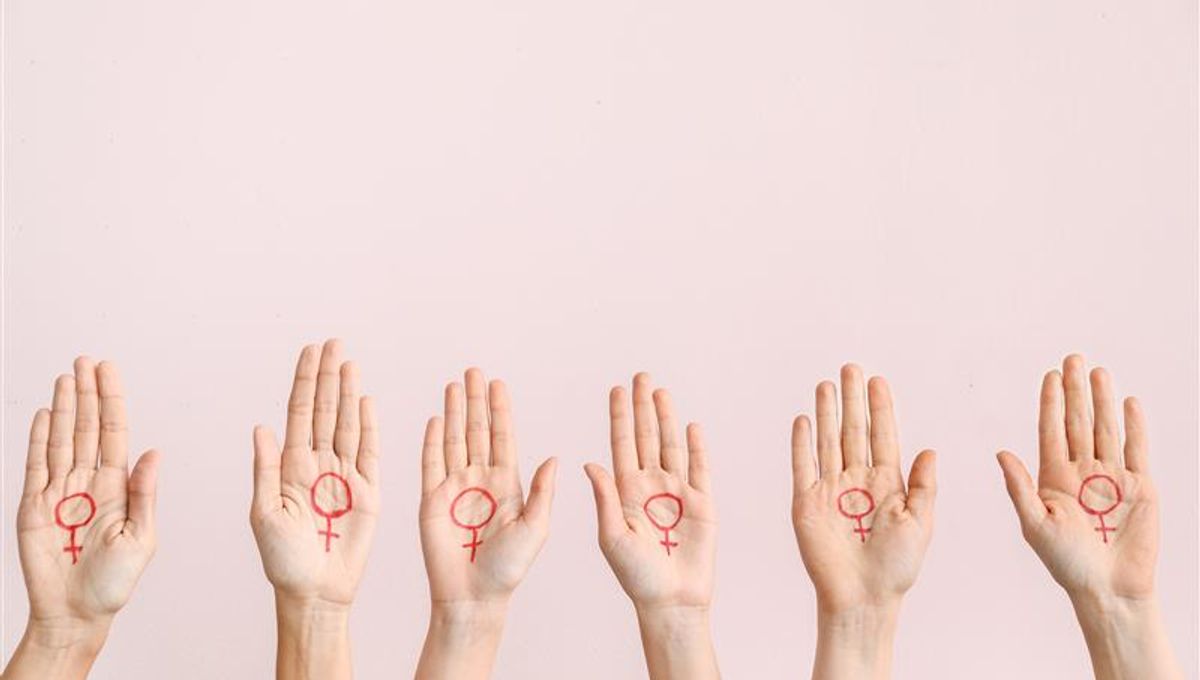
The idea that feminists are man-haters has a long and sticky history, but is it true? Well, not according to a massive new study conducted by an international team of researchers.
According to the study, which involved nearly 10,000 participants from various Western and non-Western cultures, feminists tend to hold positive attitudes towards men in ways that are comparable to non-feminists. This finding challenges long-held stereotypes that portray and dismiss feminists as simply anti-male.
Feminism has achieved many laudable advances for women and girls, as well as men and boys, since it became a formal political and social movement in the mid-19th century. But even in their earliest days, feminists were condemned as anti-male (misandry) advocates. This trope continues to be used to delegitimize and discredit feminists and, in many ways, has deterred some from joining the movement. In more extreme cases, such a representation has even inspired men to engage in aggressive and violent opposition.
In recent years, feminism has experienced a resurgence, especially among young women. In the UK, the majority of 18- to 24-year-old women identify as feminists. It is believed the #MeToo movement and the failures to stop workplace discrimination played an important role in this rise.
In the US, the number of women who identify as feminists also appears to be on the rise, with 61 percent of women in 2020 saying “feminist” describes them well. But despite this surge in feminist identity, feminism in the US is still regarded as polarizing among 45 percent of polled women and 46 percent of men. These people also regarded feminists as unfairly blaming men for their problems.
But is there any truth to the misandry claims made by the detractors? Could there be something of the stereotype accuracy hypothesis at play here, whereby a kernel of truth may actually be present in a stereotype? That’s what the team of researchers sought to discover in this latest study.
“We had started to notice a trend in the popularity of feminism among younger women and were interested in this social change given the negative stereotypes associated with feminists in the media,” study author Aífe Hopkins-Doyle, an assistant professor at the University of Surrey, told PsyPost.
After reading the literature on the subject, Hopkins-Doyle and colleagues realized there was very little empirical research on the accuracy of these stereotypes.
“We decided that the uptick in feminist identification was an opportunity to conduct an in-depth test of the misandry stereotype”, Hopkins-Doyle added. “Beyond this, we were also interested in why people think that feminists hate men and set out to examine the faulty perceptions we hold about other people’s beliefs and how these can lead us to incorrect conclusions.”
In order to test this, the team conducted five separate studies that involved 9,799 participants from nine countries. The aim was to see whether feminists really harbor negative attitudes towards men, and to find out why this may be the case if so.
Contrary to the stereotype, the study showed that feminists and non-feminists both held positive attitudes toward men.
As they wrote in the paper, “across several measures and nine national contexts, feminists displayed strongly positive attitudes toward men when compared to meaningful neutral benchmarks, and there was little-to-no evidence that these attitudes differed from nonfeminists’ or even men’s own attitudes toward men.”
But while there were no significant differences here, feminists were less benevolent towards men. The research also found that the #MeToo movement, although not contributing to negative attitudes towards men, was positively associated with collective anger at male mistreatment of women.
Another interesting takeaway was that both feminists and non-feminists saw feminist attitudes as more antimale than they really are. They both overestimated how much of a threat women see men as while underestimating the extent to which feminists see men and women as similar.
“The present findings reveal that feminists’ attitudes toward men are broadly positive and broadly similar to other people’s attitudes toward men,” the authors wrote. “They also reveal that people generally perceive the opposite to be true. In so doing, the present findings disconfirm a trope that deters women from feminism, and which is widely used to delegitimize it.”
Despite its wide implications, the study still has its limits. All the research, except Study 3, relied on self-reporting data, which could be prone to bias. It is also worth noting that even though feminists are not man-haters, as the stereotype suggests, there were outliers who expressed more negative attitudes toward men.
Still, the results are compelling. As they say, “by showing that people are wrong to think that feminists dislike men, the present findings indicate that people are wrong to dismiss feminism on these grounds.”
“We hope that by shedding light on false notions about feminists’ attitudes toward men and the specific mechanisms that may produce them, the present results contribute to theory, research, and public debates that put gender relations on a more rational and informed setting.”
The study is published in the journal Psychology of Women Quarterly.
Source Link: The "Man-Hating Feminist" Is A Misleading Myth, New Study Shows